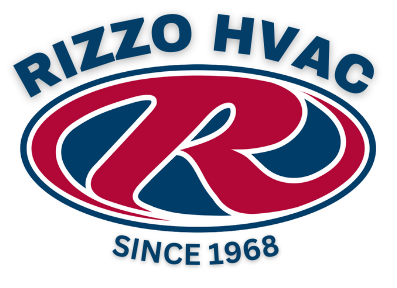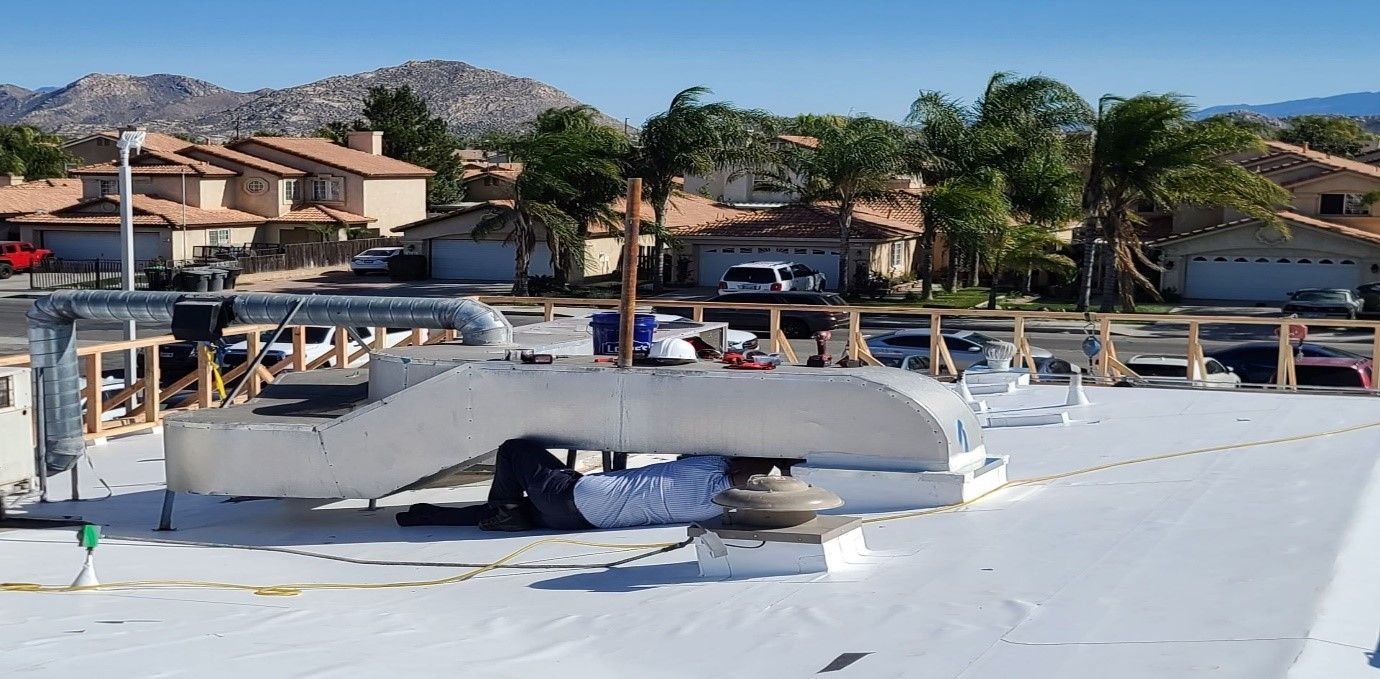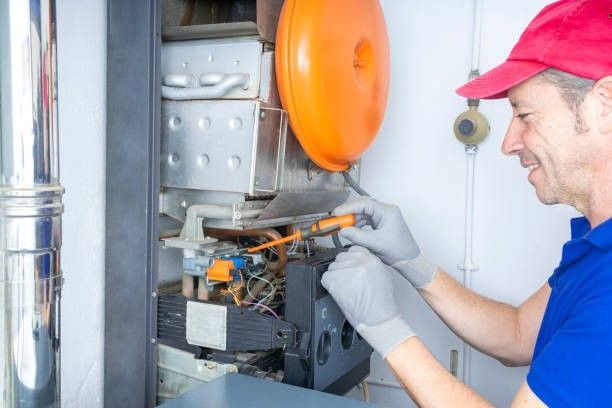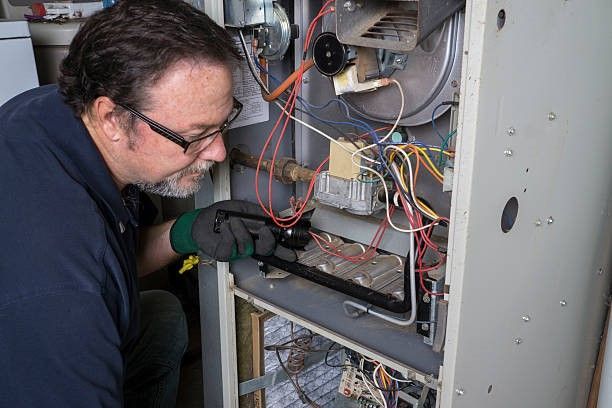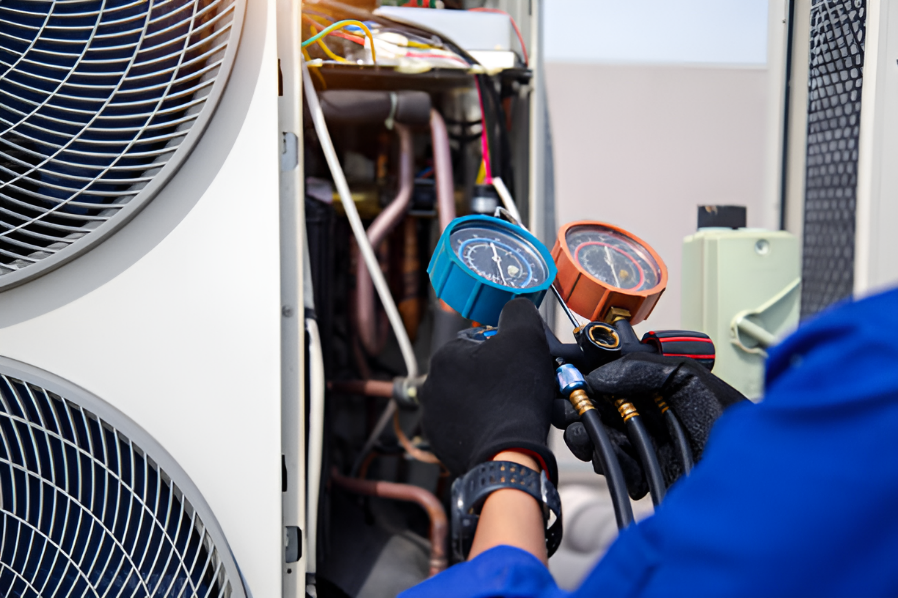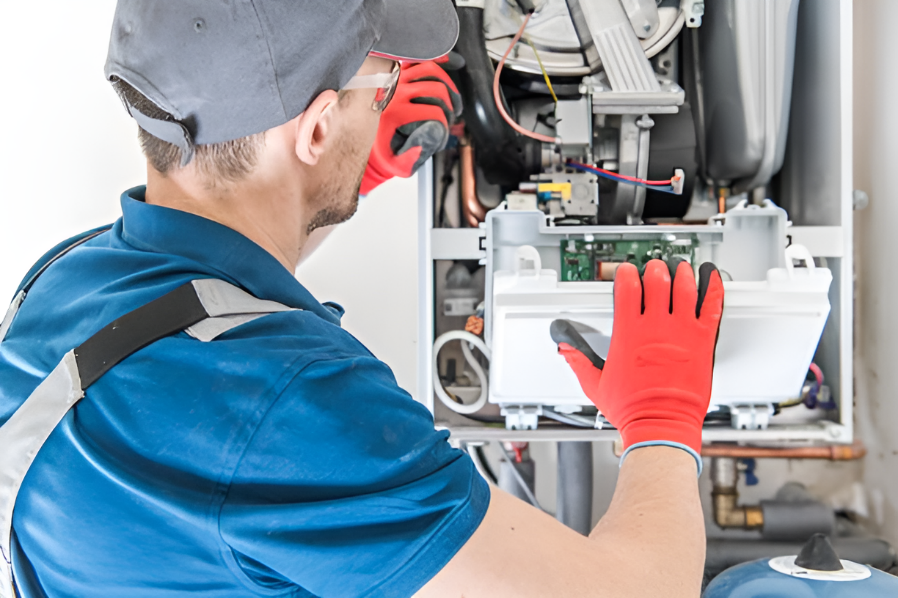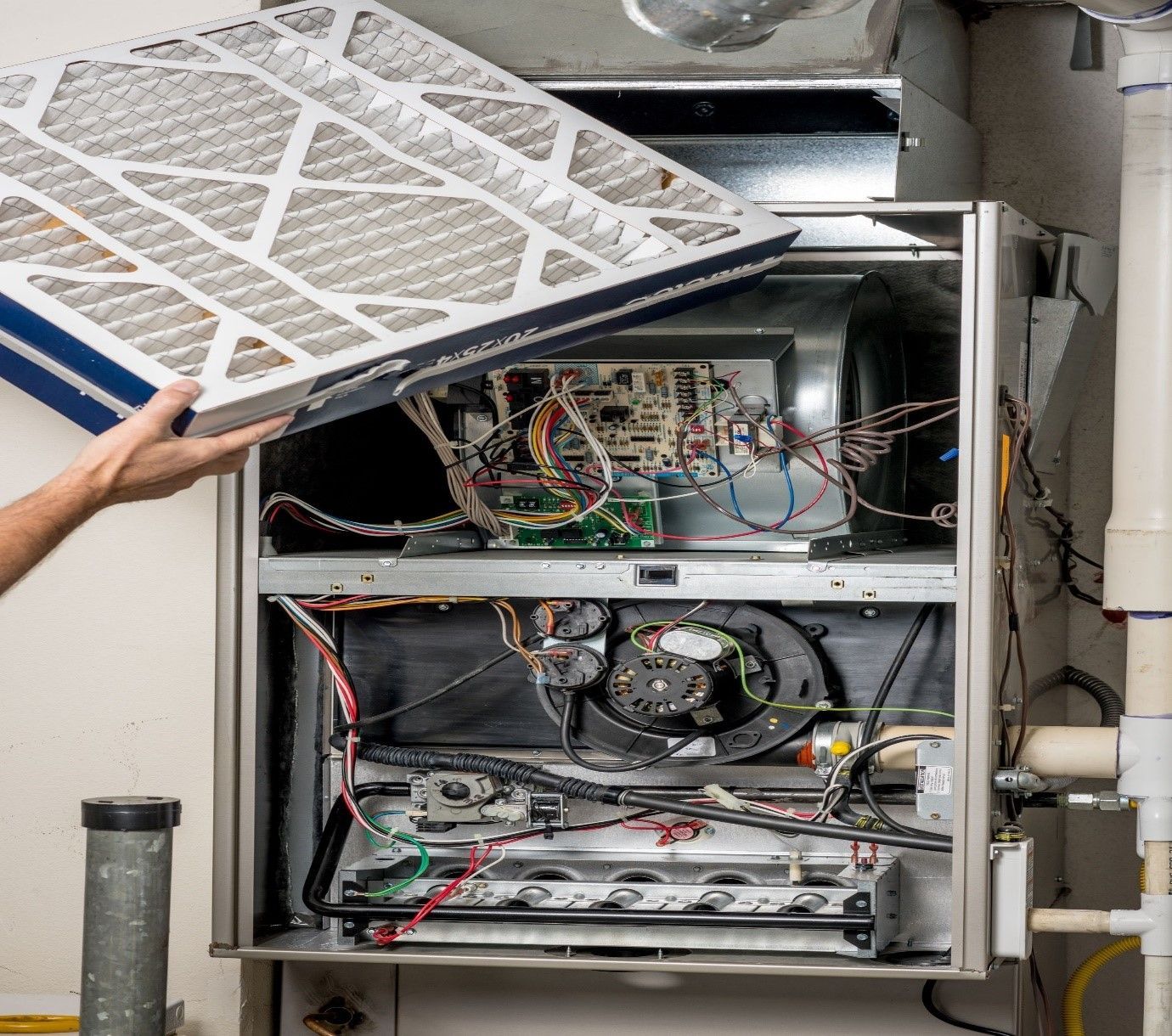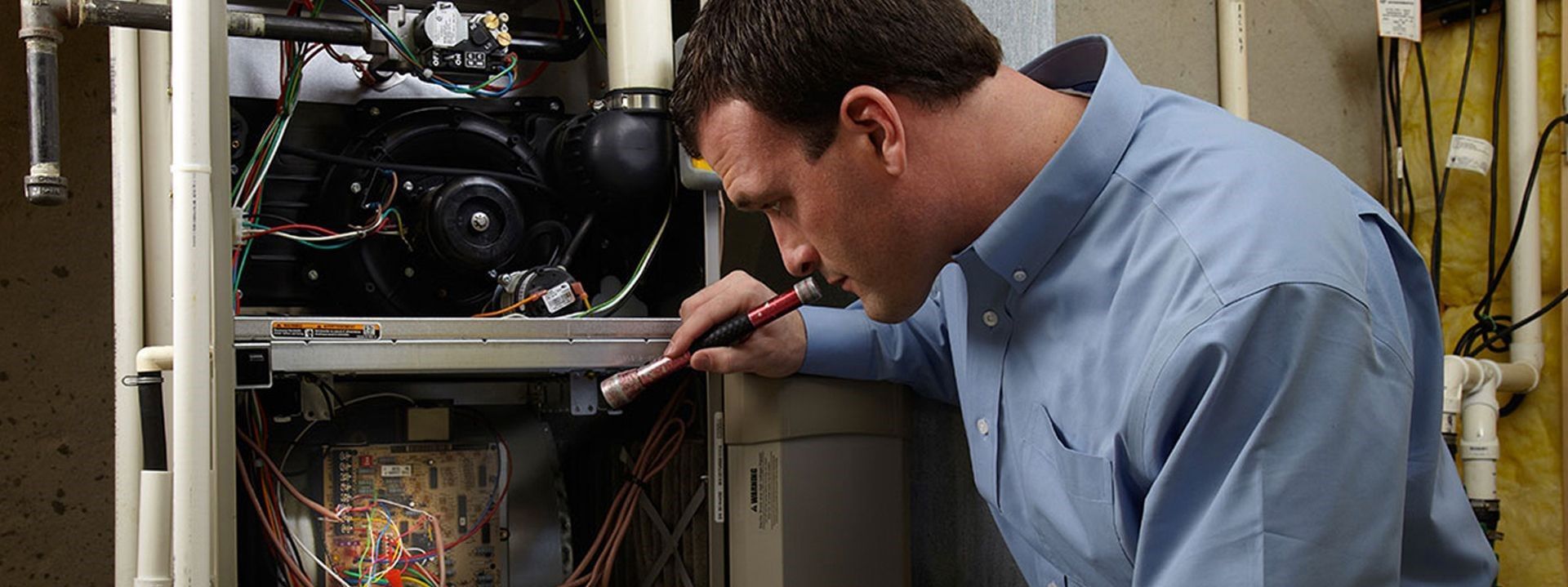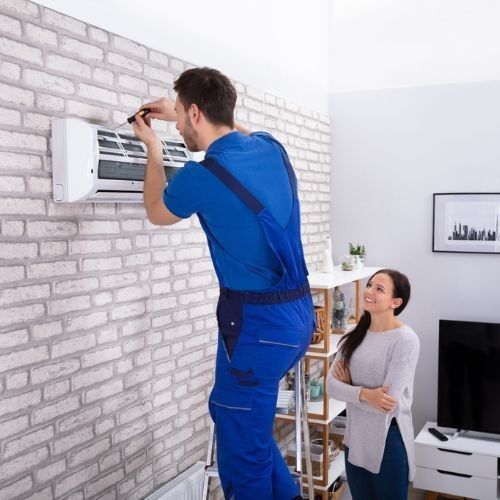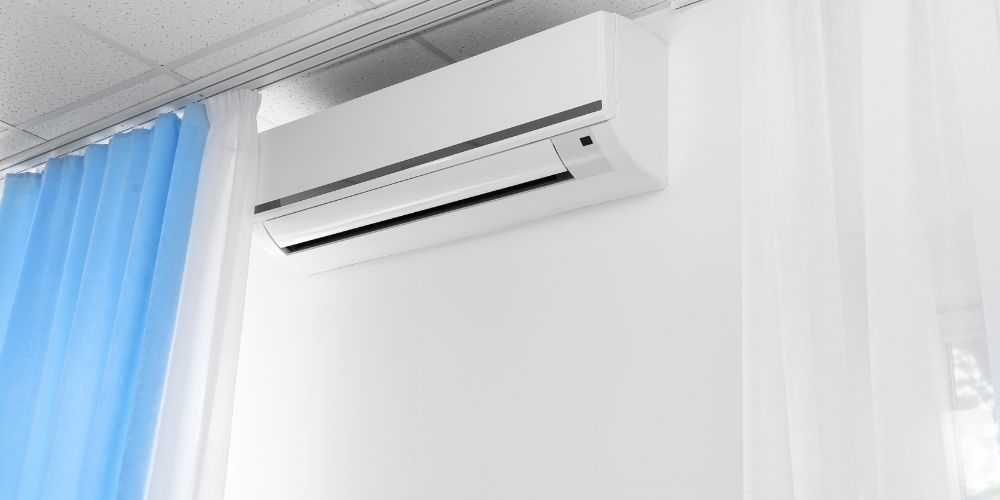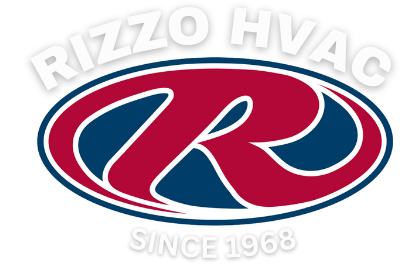4 Types of Home Air Conditioners and How to Choose One
Needing an upgrade to your air conditioning? Or has your system gone completely out of commission? Learning more about the types of air conditioning systems can lead you in the right direction. From window air conditioners to portable units to split or central systems, you may have a broad spectrum of air conditioners to choose from, but we have the information you need to make the right choice for your living space.
1. Window Air Conditioners
Also, referred to as a unitary air conditioner, this type is a self-contained unit that fits into a window. It contains all mechanical, electrical, and refrigeration components in a box-like metal shell with a vent in the front. While the coils that are located on the back (outdoor-facing) side emit heat, cold air blows through the vent and into the room. You can adjust the fan’s speed and room temperature via remote control or by pushing the buttons on the unit.
Window air conditioners are available in a variety of sizes, catering to the cooling needs of spaces ranging from a single room to an entire floor. A generously sized window air conditioner can efficiently cool an entire small home, particularly if it happens to be a single-story dwelling and it's an economical choice with easy installation.
2. Portable Air Conditioners
Portable air conditioners prove to be ideal for a space that’s 500 square feet. Like the window air conditioner, this type is also unitary and all components are self-contained, but you can move it to a different room unlike the window unit. It has a hose that blows out the warm exhaust through a hole in an exterior wall or a window vent. Its evaporator fan runs almost constantly to catch all condensation. Plus, the unit has a reservoir that also catches moisture and needs to be emptied out when full. While this unit’s inexpensive price tag and portability are huge benefits, their noise level and limitations in room size prove to be disadvantages.
3. Split (Ductless) Air Conditioners
The split system is ideal for homes that don’t have central HVAC. However, these units provide refrigerated air and in most cases, heat also with as much efficiency as a heat pump. This option involves the installation of multiple units throughout the house, depending on its size and the need for climate control. The evaporative units, which cool and disperse the air, are located inside the home.They’re rectangular in shape and are mounted high on the wall. The exterior part contains the compressor, condenser, and the condenser fan. Refrigerant tubing runs between the interior and exterior units, and the secondary tube drains away the moisture from condensation.
Due to the complexity of this system, it can pose a challenge in installation, and the units can’t be moved. Nonetheless, the system is less expensive than a heat pump.
4. Central Air Conditioning
The most expensive and the largest option is the central air conditioning system. Also called “central air,” this system has an outdoor condensing unit that resembles a large metal box and contains the condensing fan and coils along with the compressor. The evaporative unit which houses the evaporative valve and evaporator coil, is situated in the plenum of your furnace. Basically, it uses the fan and ductwork as your heater, and by changing the settings on your thermostat, you can easily switch from the air conditioner to the heater and vice versa. Any condensation is drained away through a tube that is connected to a floor drain. On the one hand, this system is probably the most efficient (not to mention the quietest) way to cool your home in relation to energy usage and cost. However, the installation could take more than a day, especially if the contractor has to work on your ducting and vents. Plus, you absolutely have to make sure to get the correct size of system for your home, or it won’t work properly.
Choosing a Home Air Conditioner
The air conditioner is essential to any home and takes up a big portion of your budget for must-have home appliances. With so many choices in the market, figuring out which ac is best can get complicated. So here are the most important factors to consider when choosing a system along with some helpful hints for finding the HVAC professionals who can install and maintain the air conditioning unit.
Understanding cooling needs and system requirements
By comparing all the types of air conditioning systems while looking at the size of your home, you can make a more informed decision. In other words, the more living space that requires cooling, the larger the system or number of units. In addition to the square footage, you’ll need to consider your electrical system and what it can handle. For instance, simpler cooling solutions, like a window or portable air conditioner, won’t require an electrical upgrade and a new breaker box, whereas a central one might involve extra work in that area. (Don’t forget, however, that a checkup of your electrical system is a necessary safety measure anyway.)
Factors to consider when choosing an air conditioner.
In relation to the size and layout of your home, other factors that come into play include the size of the system and the noise level. If you don’t mind the noise, then window and portable units may work out well for one or two rooms–keeping in mind that you may need multiple units or in the case of the portable type, you might move it around (though for peak performance, not too often).
Also, the efficiency rating ranks high in importance. After all, you don’t want to invest in a system that runs constantly and increases your utility bills. Moreover, you should compare prices as you’re looking at efficiency ratings.
Tips for making an informed decision and working with HVAC professionals.
Finally, you can do all the research in the world about different brands, models, and ratings when figuring out which ac is best, but a licensed and highly knowledgeable professional can provide the best guidance. When it comes to air conditioning, you might skip the DIY route and look for an HVAC installer who has stellar reviews, many years of experience, and full knowledge of which systems work best in a variety of spaces.
You don’t have to look further than Rizzo HVAC. For over 60 years, we’ve led the industry with the latest technology related to air conditioning and heating installation and maintenance. We’re your go-to for
any questions and of course, for an accurate, detailed assessment of your home’s air conditioning requirements.
